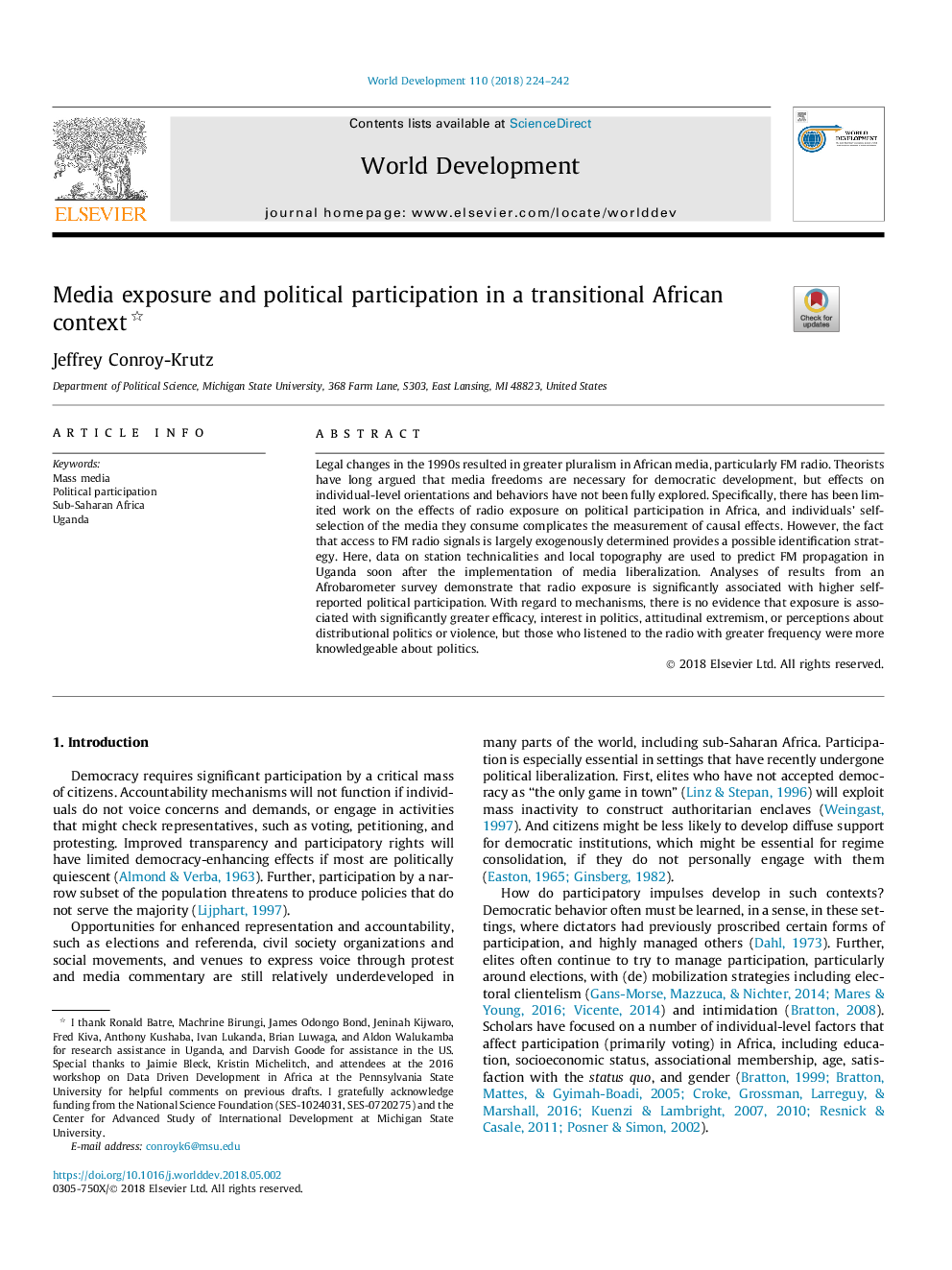| Article ID | Journal | Published Year | Pages | File Type |
|---|---|---|---|---|
| 7391535 | World Development | 2018 | 19 Pages |
Abstract
Legal changes in the 1990s resulted in greater pluralism in African media, particularly FM radio. Theorists have long argued that media freedoms are necessary for democratic development, but effects on individual-level orientations and behaviors have not been fully explored. Specifically, there has been limited work on the effects of radio exposure on political participation in Africa, and individuals' self-selection of the media they consume complicates the measurement of causal effects. However, the fact that access to FM radio signals is largely exogenously determined provides a possible identification strategy. Here, data on station technicalities and local topography are used to predict FM propagation in Uganda soon after the implementation of media liberalization. Analyses of results from an Afrobarometer survey demonstrate that radio exposure is significantly associated with higher self-reported political participation. With regard to mechanisms, there is no evidence that exposure is associated with significantly greater efficacy, interest in politics, attitudinal extremism, or perceptions about distributional politics or violence, but those who listened to the radio with greater frequency were more knowledgeable about politics.
Related Topics
Social Sciences and Humanities
Economics, Econometrics and Finance
Economics and Econometrics
Authors
Jeffrey Conroy-Krutz,
